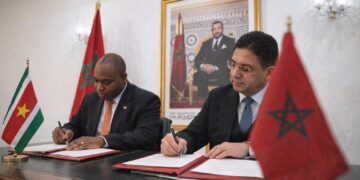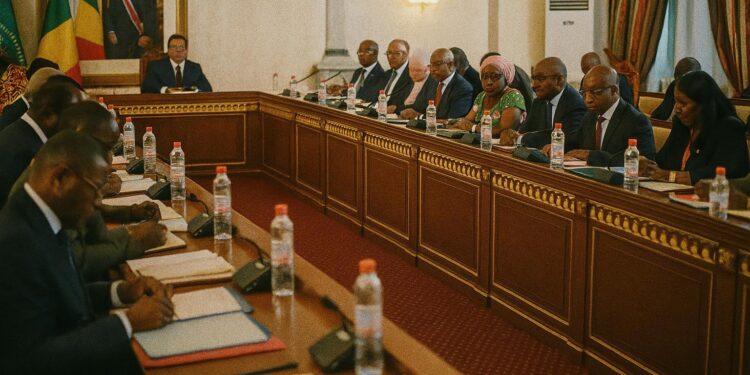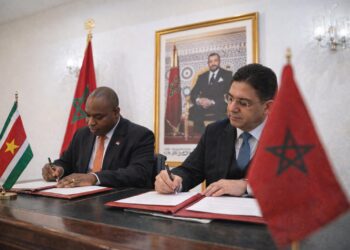Cabinet session sets an ambitious 2025–2028 roadmap
Gathered at the historic Palais du Peuple, the Council of Ministers on 23 July 2025 adopted a multidimensional package that senior officials describe as a “pivot toward disciplined modernity.” President Denis Sassou Nguesso framed the agenda as one that must “translate macro-stability into everyday confidence for citizens and investors alike,” highlighting continuity with commitments undertaken in the National Development Plan 2022-2026.
Stronger environmental due diligence for climate resilience
The centrepiece of the meeting was a decree overhauling environmental and social impact assessments, replacing the 2009 framework to align with the November 2023 Sustainable Environment Act. Environment Minister Arlette Soudan-Nonault emphasised that the revised regime imposes earlier stakeholder consultations and post-project audits, echoing recommendations from the World Bank’s 2021 Climate Risk Country Profile for Congo that urged “enhanced enforcement capacity” (World Bank). The administration gains expanded powers to suspend non-compliant projects, a provision welcomed by regional climate observers who see Brazzaville positioning itself as a credible partner in the Central African Forest Initiative.
Digital postal codes as a catalyst for e-commerce
Minister Léon Juste Ibombo’s proposal to introduce a national postal-code grid, compliant with Universal Postal Union standards, marks a pragmatic step toward unlocking domestic e-commerce. The absence of precise geocoding has historically inflated last-mile delivery costs by up to 30 percent, according to a 2024 study by the African Union’s Digital Transformation Initiative. The forthcoming codification is expected to synchronise with the country’s fibre-optic backbone and mobile-money penetration, providing fertile ground for small and medium-sized enterprises to scale.
Fiscal discipline underpins macroeconomic credibility
Finance Minister Christian Yoka’s first-quarter report confirmed a narrowing deficit and a primary surplus on a cash basis, aided by higher oil receipts and the rollout of an electronic tax-filing portal. The newly approved Medium-Term Budget Framework targets debt-to-GDP below 60 percent by 2028, consistent with CEMAC convergence criteria (IMF Article IV Consultation, 2024). While global rating agencies maintain a cautious outlook, several portfolio managers interviewed in Paris note that “continuity of reform and predictable expenditure ceilings” could lower sovereign yields in the secondary market.
Preparing for the ICAO safety audit
With an ICAO Universal Safety Oversight Audit scheduled for October, Transport officials have accelerated runway lighting upgrades and radar calibration at Maya-Maya International Airport. The National Civil Aviation Agency is onboarding additional inspectors trained under the Agency for Aerial Navigation Safety in Africa programme. Congo’s average Effective Implementation score stood at 66 percent in 2023, marginally above the global median of 64 percent (ICAO Annual Report), suggesting that targeted improvements could propel the country into the continent’s top quintile for aviation safety.
Guarding public health against water-borne threats
Health Minister Jean Rosaire Ibara’s alert on diarrhoeal clusters in Mbamou Island and Mossaka-Loukoléla prompted an immediate 248 million CFA allocation for chlorination, community sensitisation and laboratory surveillance. The World Health Organization’s 2022 Joint External Evaluation praised Congo’s “robust event-based surveillance,” yet recommended faster provincial procurement cycles. The current intervention therefore doubles as a stress test for supply-chain reforms introduced earlier this year.
Strategic appointments consolidate administrative agility
The Council approved a slate of appointments deemed critical to implementation. Nestor Oyoukou will chair the National Printing House, while Guy-Roland Ntsimba Diakabana assumes the directorship, both charged with expanding secure document production. Antoinette Ashley Nguesso Ambendet’s nomination to lead the Tourism Promotion Office underscores Brazzaville’s intent to weave culture-based revenue into its diversification matrix, in line with UNWTO guidance on post-pandemic recovery.
Balancing optimism with institutional maturity
Diplomatic observers in Addis Ababa perceive the reforms as evidence of “methodical consolidation rather than headline-grabbing overhaul.” By sequencing environmental vigilance, digital infrastructure, fiscal rectitude and health preparedness, the government seeks to insulate the economy from external shocks while signalling alignment with multilateral norms. The effectiveness of this strategy will hinge on sustained administrative coordination, yet the July measures provide a coherent template that partners—ranging from Afreximbank to the French Development Agency—can readily benchmark.
For now, Brazzaville’s messaging resonates: a sovereign endeavour to modernise without disowning its policy lineage. As one senior regional envoy quipped off-record, “Congo is pacing its reform drum with care; the cadence may be measured, but the sound carries.”












































